- News
- Events
- Oneg Shabbat
- Collections
- Research
- Exhibitions
- Education
- Publishing Department
- Genealogy
- About the Institute
- Bookstore

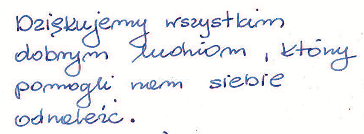
„We’d like to thank all the kind people who helped us find ourselves” — this concise sentence doesn’t attract attention at first. It’s polite, slightly formal. But it’s only appearances, first impressions. In the moment in which circumstances that led to writing it are discovered, our attention automatically focuses on two expressions: „kind people” and „find ourselves”. They carry an emotional and informational load which overgrow the sentence.
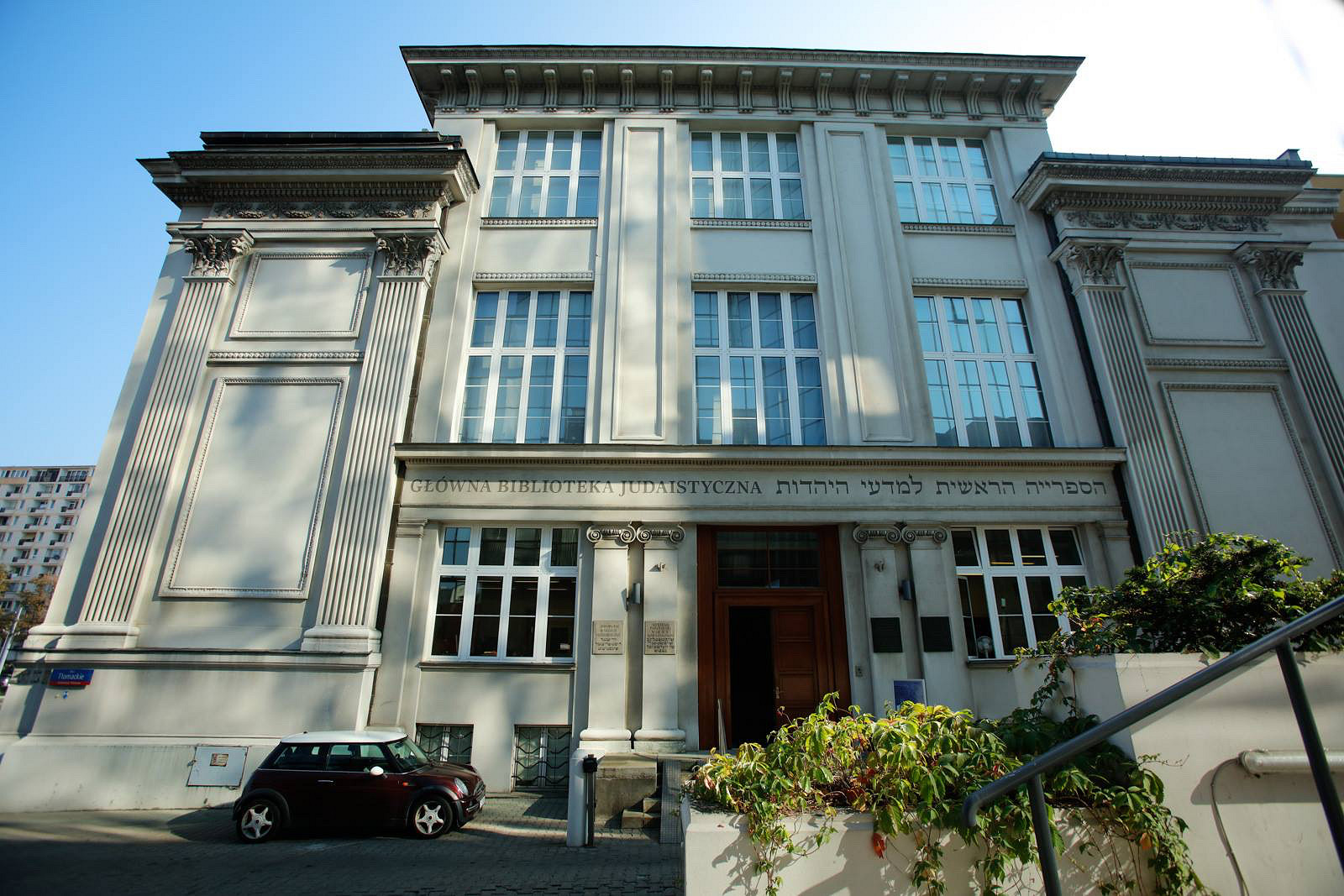
This is the beginning of a letter sent in September 2017 to the Genealogy Department of the Jewish Historical Institute. The Department is located at the ground floor of the building at Tłomackie 3/5 – before the war home to the Main Judaistic Library and the Institute for Judaistic Studies, currently – the address of the JHI. Precisely, the Department is located on the ground floor, on the left. It is easy to find – the door is always open. It’s important, because many people come here. In 20 years, we’ve had several thousand visitors.
Our team is waiting for them here – Ania, Noam, Matan. They help restore unknown fagments of family history, find traces of lost family members, link together relatives living in various places of the world. On site, they use the resources from the JHI archives and verious databases (JRI-Poland, Jewishgen, Yad Vashem, Ancestry or FamilySearch). They have long-time experience in cooperation with institution helpful in such pursuits. But above all, they put their hearts in their work.
The letter was written by Łucja.
Łucja
Łucja was born in 1944, in a small town near Vilnius. She was brought up without her father, about whom she didn’t have any information. In the late 1990s, she tried to look for him with help of the Polish Red Cross, looking for the name he used during the war, but with no success. After her mother died in 2001, she found out thanks to her aunt, that her father was Jewish and he changed his name to a Polish one, possibly hoping to escape the Nazi Holocaust. During the war, he was hiding in Łucja’s grandparents’ farm, where he met her mother. This his how Łucja was born.
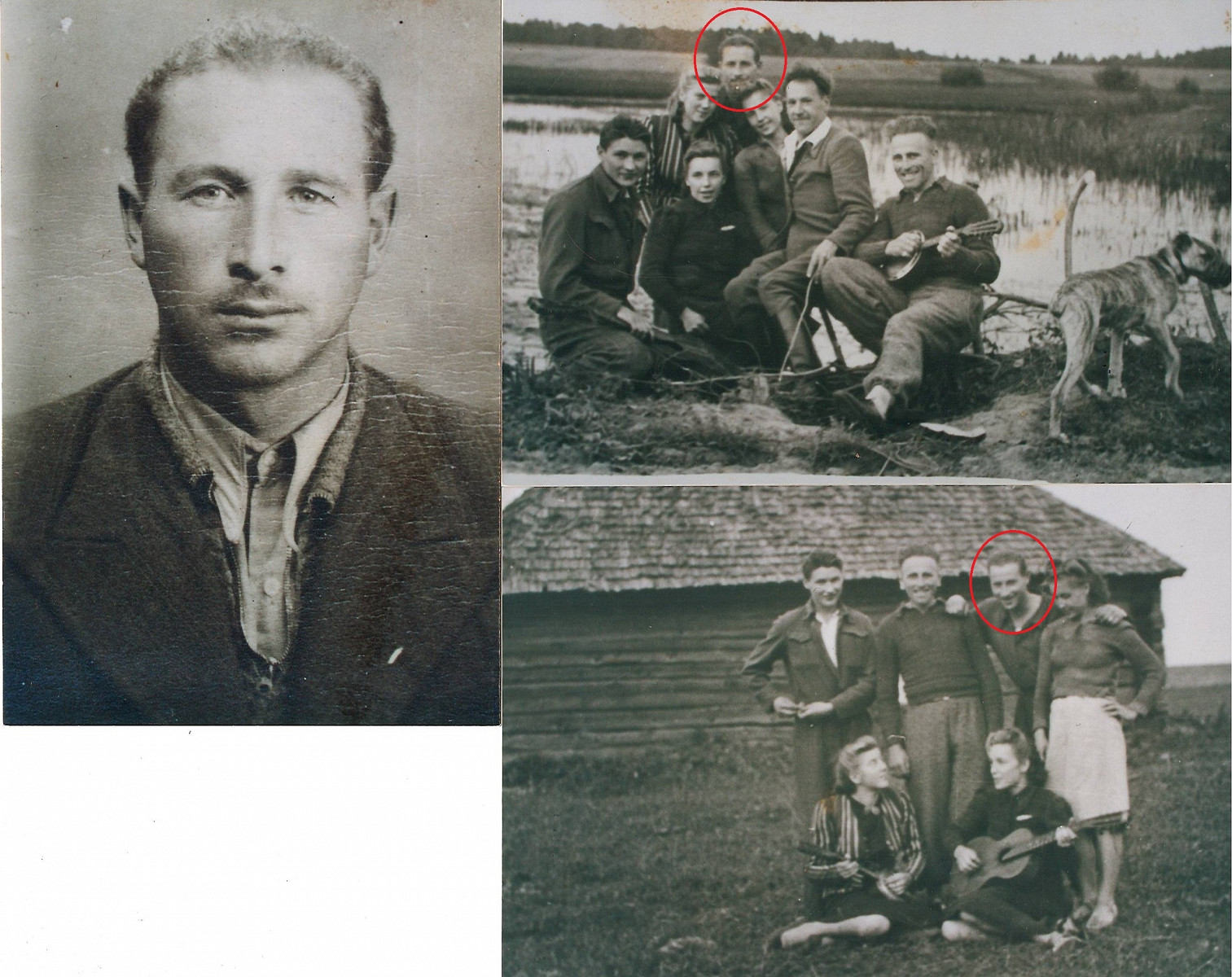
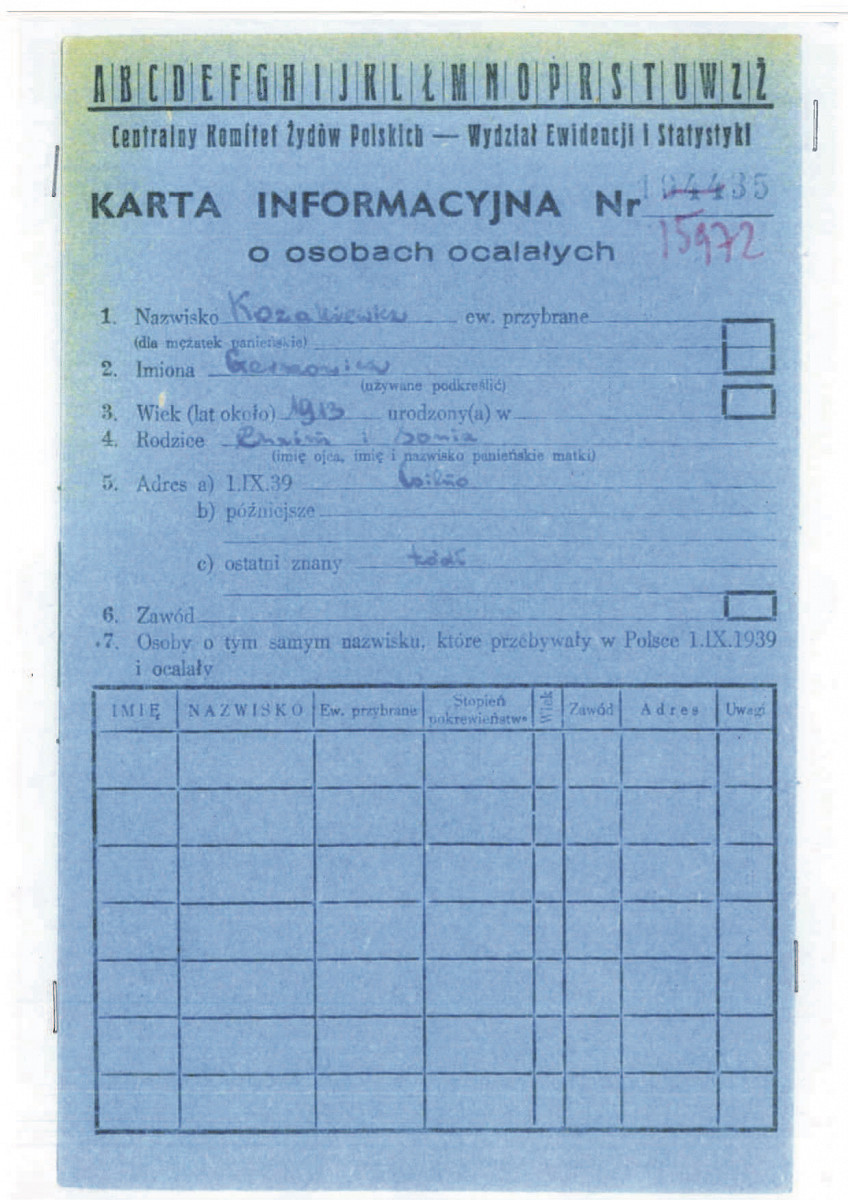
After the war, he moved to Lower Silesia with first repatriates. Nobody heard anything from him, so in 1946 Łucja and her mother returned to Poland in order to search for father and husband. They didn’t succeed. Eventually, both women moved to Gdańsk, and Łucja’s mother got married again. Father was declared dead or missing.
Having discovered her father’s real name, Łucja decided to resume her search. In 2017, she contacted the Genealogy Department of the JHI. His data was discovered in information card collected after the war by the Central Committee of the Polish Jews. From card no. 15972, Łucja found out that her father arrived in Łódź, registered as unmarried, and moved to Israel.
Genealogists have located his grave at the BillionGraves website. He died in Tel Aviv in 1999. The inscription on his grave said: „to out dearest husband, father and grandfather”.
Searching
The Genealogy Department at the JHI has existed for over 20 years. Initially, as the Genealogy Project associated with the JHI and supported by the Ronald S. Lauder Foundation, later – thanks to support from The Taube Foundation for Jewish Life & Culture from San Francisco – as the Genealogy Department at the JHI. Currently, it is the only institution of this type in Poland.
People who would like to get to know the history of their family contact the Department by e-mail or personally. Some of them look for their own identity, they would like to know where them or their relatives come from, others want to find out about their real names which were concealed during the war.
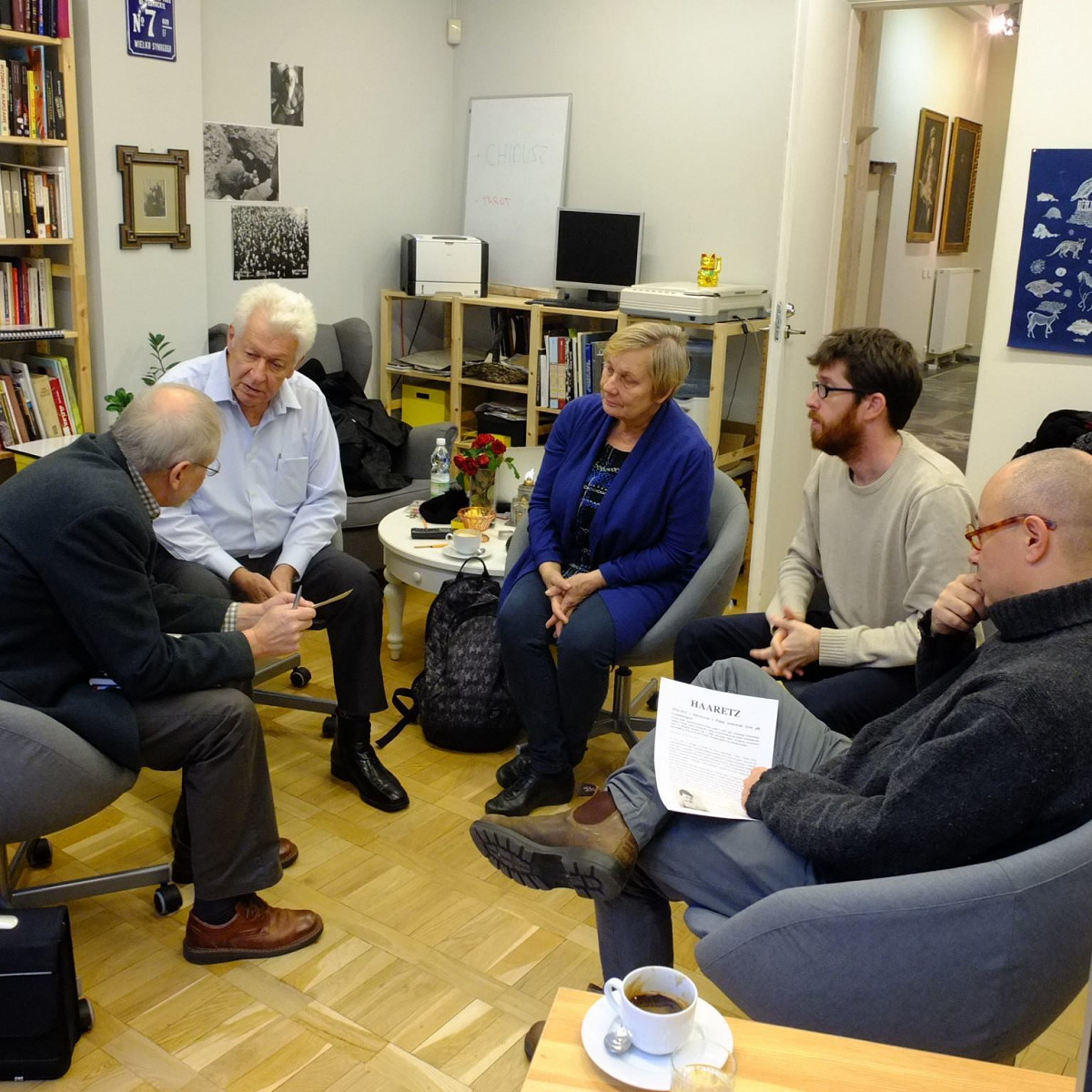
Inquiries arrive from almost every part of the world. Most of them come from the United States, Israel and Poland, but also from Canada, Australia, New Zealand, South America, Europe, Japan, Iran, India, and recently – also from Russia, Belarus, Ukraine, Lithuania and Latvia.
The staff of the Genealogy Department try to collect necessary data from the queriers: where their relatives lived, what were their names and relationships. They assess all possible information, from the very basic ones to seemingly less important, basing on which they try to build a complete family portrait. They also try to paint a picture of the queriers’ ancestors which goes beyond the basic data. They attempt to find out who they were, what were their personalities, which ideas they followed. If they left Poland, what were their motivations? Another important is why this information is being sought and what it means to people who would like to know.
They remain in constant contact with rabbinates and institutions which could provide support, such as courts, city offices, press, even police.
Discoveries are a result of long searching, sometimes helped by chance. Any trace may be the right one. Certainly, the biggest advantage of the Department is constant access to vast archives (the predecessor of the JHI was the Central Jewish Historical Commission, which collected accounts of Holocaust survivors). On the other hand, the Department has been collecting records of all examined family stories and addresses, which makes it possible to contact distant cousins or neighbours from the same town even after many years.
The access to the data would be useless were it not for the staff (which consists of people from Poland and Israel) with long-time experience not only in strictly genealogical work, but also – or perhaps above all – in talking to people on very personal, difficult ground.
Róża
Róża was born in the USSR in 1943. Her father was Jewish. She lost contact with him when he returned to Poland after the war. The search was began by... Róża’s granddaughter, who found family photos, including a picture of a man and a woman with two sons; as it turned out, it was Róża’s uncle with his family. They had send this photo before they moved to Israel in the 1950s.
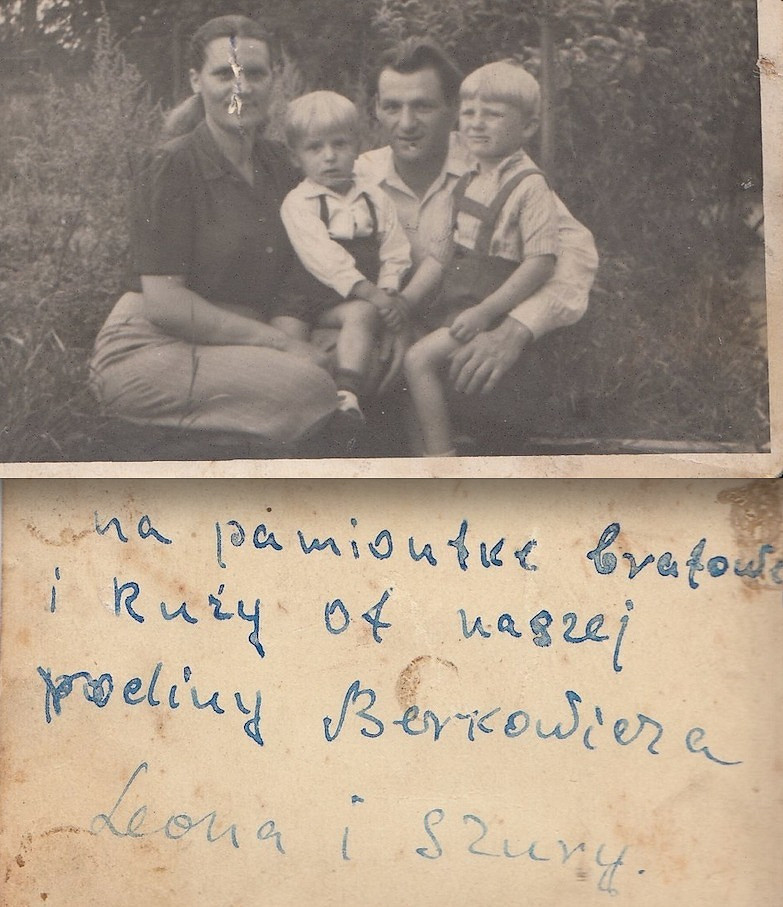
The Genealogy Department, at the granddaughter’s request, found the father’s birth certificate, his proof of stay, but also... Róża’s family in Israel. It turned out that Róża has a stepsister, Tzipora. Their father died when Tzipora was 14.
Rediscovery
Looking for information is the first step in genealogists’ work. The next one, equally important, is passing the results to the interested parties: not only to the queriers, but also – or perhaps above all – to those who have been found.
How to let someone know that their husband, wife, father, grandfather had a different family before the war? It means that they carried a secret for their entire life, that they’d been hiding information crucial to their – and to other people’s identity? Or, simply: that their ancestors were Jewish?
How to tell someone that somebody who had been declared dead for many years, started a new family in Israel? That somewhere – maybe in Tel Aviv, maybe in the next town – they have a stepbrother or sister, or a direct sibling?
Often people react with denial, with trying to rescue a safe status quo: maybe it’s someone else with the same name? Maybe mum, grandma or grandpa have invented the story? Sometimes, a DNA test becomes an ultimate proof.
Such conversations aren’t easy. They require experience, sensibility. Proving that the discovered information is the truth is the most important issue. It restores certainty in a world whose foundations have been shaken.
Łucja and Róża
The Genealogy Department has found Łucja’s family in Tel Aviv. It turned out that she has a stepsister and a stepbrother, Tirza and Avraham. They didn’t know about her, even thought they were aware that their father survived the war thanks to a Polish family which was hiding him. A new situation was difficult to accept for them. They needed time. Eventually, Łucja went to Tel Aviv and met her family. She wrote in a letter to the Genealogy Department: „On 5 November 2017, I stood at his grave in Tel Aviv, and I placed a heart-shaped stone on it. My new sister Tirza and my new brother Avi stood next to me by my Dad’s grave”.
Róża met Tzipora almost immediately after discovering the family in Israel. It took place in Szczein in late November 2017. The meeting, full of emotion and tears, was recorded by Israeli television. The recording is available here.
Róża intends to visit her father’s grave in Israel as soon as possible.
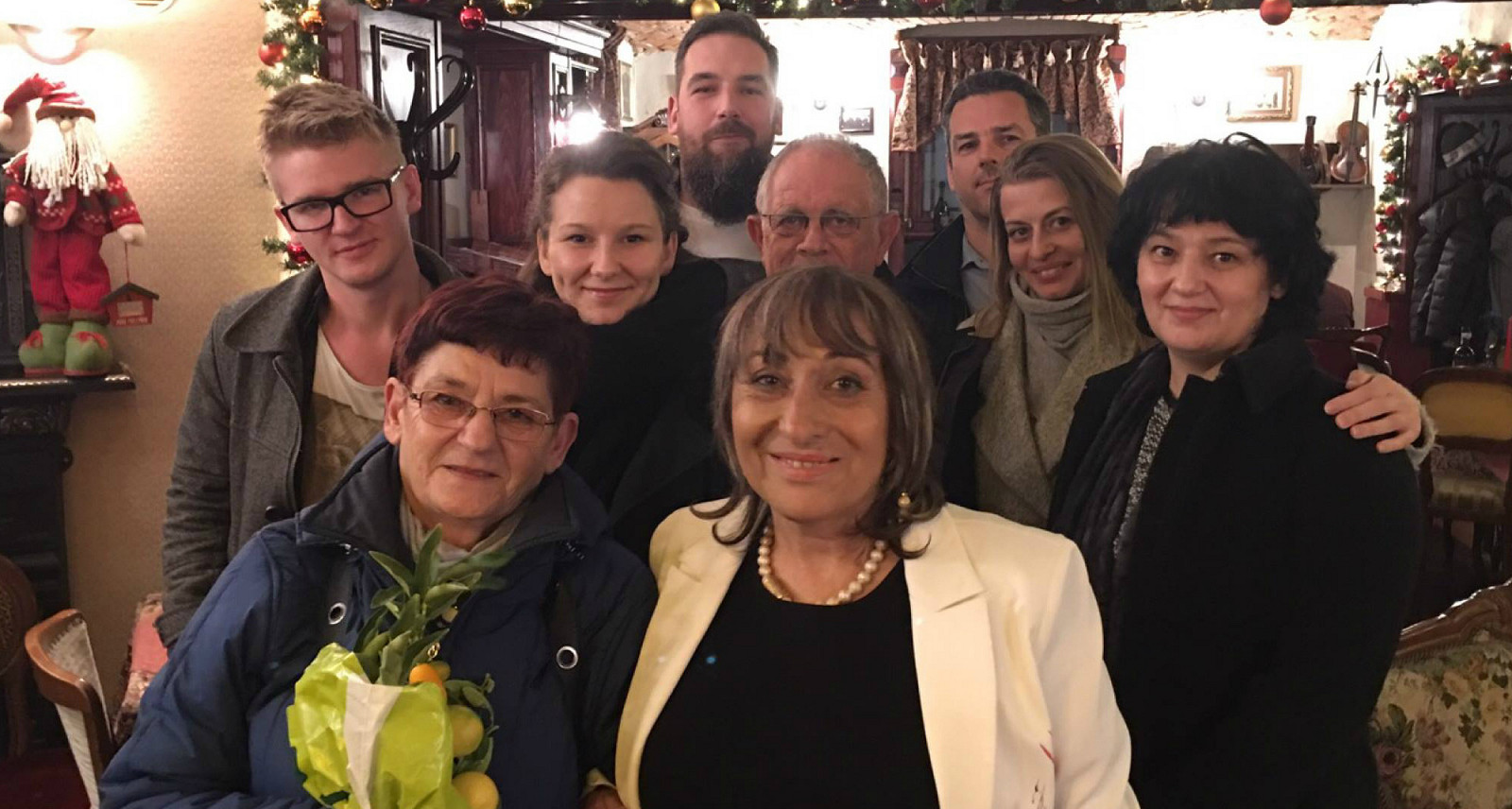
The way
Several decades have passed since the end of the war. Many blank slates in family histories have been explained. But the issues of origin, of identity, don’t expire. Following generations keep making attempts at finding their roots.

People who come to the Genealogy Department at the JHI often lack hope that their pursuits will bring results. Their visit to Tłomackie 3/5 is often yet another try after visits to other institutions in various places in the world, which couldn’t find answers to their questions.
Often the answer is found here, in the Jewish Historical Institute. Thanks to the archives of the CJHC, original databases, the work of an experienced, patient staff. Still, even though not all pursuits are successful, even the fact that someone did everything to find an answer is a kind of victory. The way becomes a goal – and following the way brings peace. It gives an awareness that we’ve done everything we could. And it’s a lot.
More information about Genealogy Department
Follow us on Facebook!